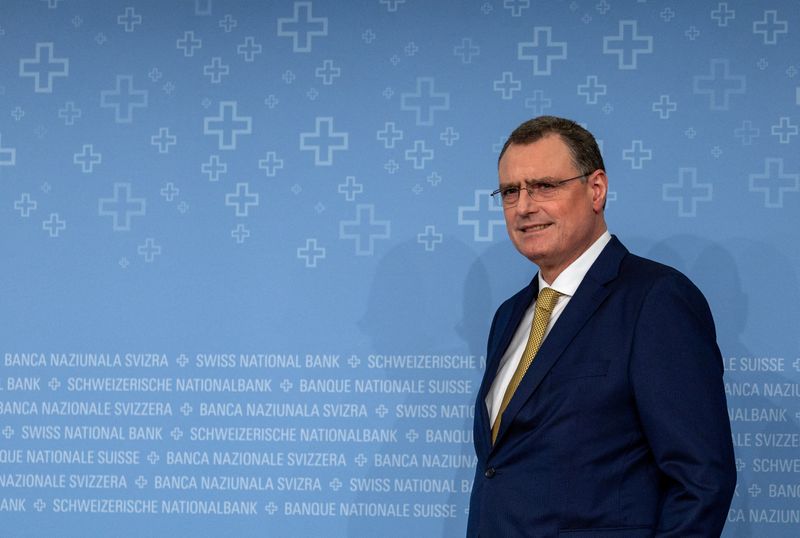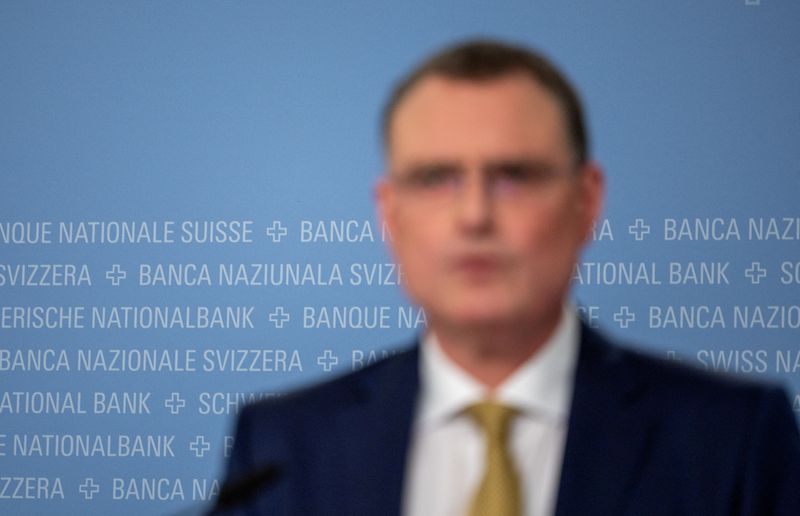By John Revill
ZURICH (Reuters) - Thomas Jordan, who is stepping down as chairman of the Swiss National Bank, has been no stranger to crises during his 12-year stint running the institution.
Viewed widely as the epitome of a diligent technocrat, the Harvard-educated economics professor was not afraid to take big and sometimes unpopular decisions.
The 61-year-old took the helm of the central bank after his predecessor Philipp Hildebrand was forced to step down.
A contrast to the flamboyant Hildebrand, Jordan assumed the task of steering the SNB through the eurozone crisis.
"Thomas Jordan is very Swiss - he's very capable, but also very modest. He knows the SNB from back to front, really knows his stuff, but he's not arrogant at all," said one Swiss economist, who asked not to be named because of the sensitivity of the matter.
"He's disciplined and prepared, but always in control and not prone to making gaffes," the economist continued. "He's the sort of person you'd like to be your neighbour."
Jordan's first priority was fighting appreciation pressure on the safe-haven Swiss franc. Initially, he maintained the minimum exchange rate policy of his predecessor.
But by 2015 the pressure was growing.
The SNB was spending billions every week defending the rate, and Jordan scrapped the policy, sending the franc surging in value and upending global currency markets.
Despite heavy criticism from Swiss exporters, Jordan stood firm, backed by unconventional policies such as the world's lowest interest rates and foreign currency purchases to deter investor appetite in the franc.
He stuck to the policy even as the franc weakened in later years.
Meanwhile, the central bank's foreign currency reserves ballooned to a almost a trillion dollars making, the SNB's own earnings highly volatile.
In 2022, the central bank racked up a loss of 132.5 billion francs - the biggest in its 117-year history.
This meant the SNB would not make a payout to the Swiss government or local governments, but it was not an issue for Jordan, who stressed the importance of fighting inflation, with profits and losses a side effect.
He resisted calls for the SNB to uses its massive balance sheet to invest in environmental concerns, or plug holes in the Swiss pension system.
As a resolute defender of central bank independence, such moves would be anathema to Jordan, who joined the SNB as an economic adviser in 1997 and occasionally lectures in economics at he University of Bern.
When inflation returned to Switzerland in 2022, he changed tack on monetary policy and raised interest rates again.

Jordan was criticised by some members of the Swiss business community, who feared the franc would surge again, but the central bank was successful in keeping inflation much lower than other countries.
Jordan was also closely involved in the rescue of Credit Suisse last year, providing billions of francs in emergency liquidity to ease its takeover by UBS.
